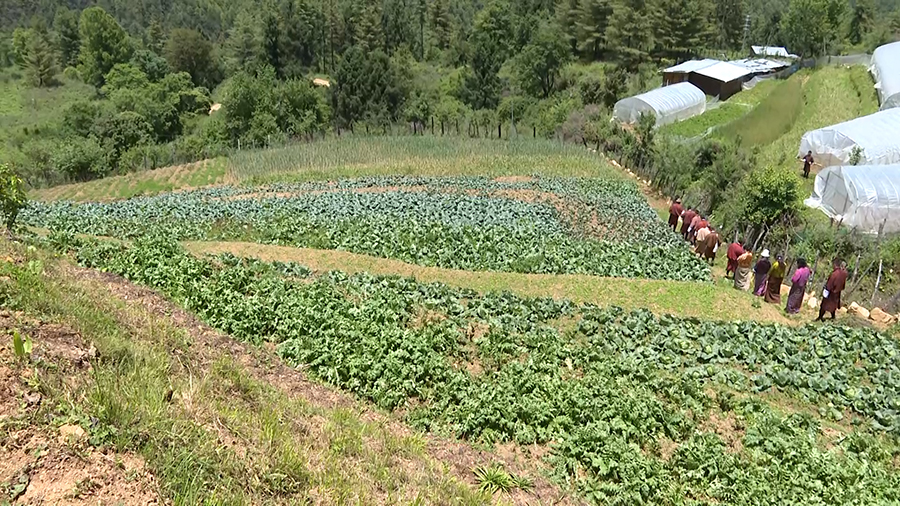 As Bhutan strengthens its commitment to organic farming, some farmers are already embracing sustainable practices despite challenges in market access and public awareness. One such example is the Jadingkha Organic Farmers’ Group in Thimphu’s Maedwang Gewog, where local farmers are working to increase their organic crop production and income. The group, established in 2019 remains hopeful that with continued support from the government, organic farming can become both profitable and sustainable.
As Bhutan strengthens its commitment to organic farming, some farmers are already embracing sustainable practices despite challenges in market access and public awareness. One such example is the Jadingkha Organic Farmers’ Group in Thimphu’s Maedwang Gewog, where local farmers are working to increase their organic crop production and income. The group, established in 2019 remains hopeful that with continued support from the government, organic farming can become both profitable and sustainable.
 Of the 36 households in Jadingkha village at Maedwang Gewog, 18 are currently engaged in organic farming on over nine acres of land.
Of the 36 households in Jadingkha village at Maedwang Gewog, 18 are currently engaged in organic farming on over nine acres of land.
 Last year, the group produced a little over 7,800 kilogrammes of crops and vegetables.
Last year, the group produced a little over 7,800 kilogrammes of crops and vegetables.
This year, they expect production to exceed 9,500 kilogrammes.
The 18-member group earned nearly Nu 640,000 last year.
With better yields and growing awareness, they hope to increase their income every year.
Tshering Dorji, the chairperson of Jadingkha Organic Farmers’ Group said, “People lack awareness about the value of organic produce. Since organic vegetables are not visually appealing, and are often affected by insects, many consumers assume they are of poor quality and hesitate to buy them. This discourages farmers despite our hard work.”
He added that imported vegetables and those grown using chemical fertilisers often appear fresher, which misleads consumers.
“When vegetables look better from the outside, people assume they are better. But organic produce, although healthy, is hard to sell because of its appearance. That’s why many farmers have lost interest in continuing organic farming.”
The district agriculture supported the group with land development, water supply, road access, and training in organic manure preparation.
Thuji Penjor, Agriculture Extension Supervisor of Maedwang Gewog said, “When we see holes in organic vegetables, it is a sign that insects can safely eat them, meaning they are chemical-free. I believe it is better to wash off the insects than to consume vegetables treated with harmful pesticides.”
 With the recent opening of an organic sales outlet at Kaja Throm, the group will now sell their farm produce at the stall.
With the recent opening of an organic sales outlet at Kaja Throm, the group will now sell their farm produce at the stall.
As of late 2022, Bhutan had achieved about 10 per cent organic agriculture production, with a small percentage of land certified organic. Bhutan is aiming to transform its agriculture into a sustainable, healthy, and largely chemical-free sector.
Karma Wangdi
Edited by Tshering Zam









